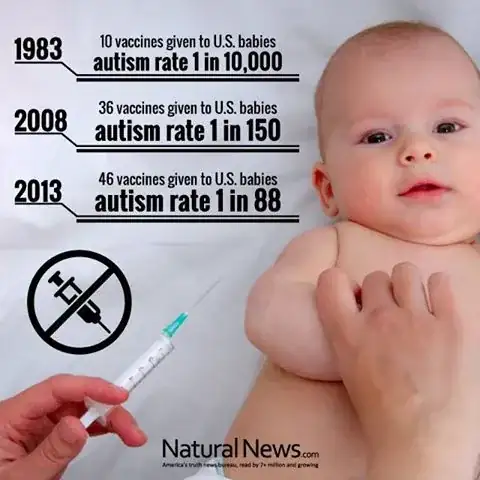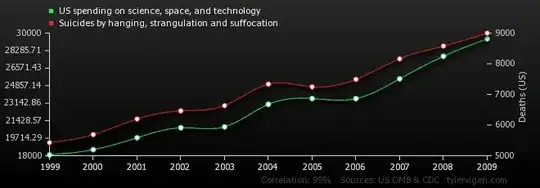Number of Vaccinations
These figures are approximately correct for 1983 and 2008 (but not for 2013) and seem to be based on CDC recommendations.
The numbers are likely taken from the vaccination schedule recommended by the CDC. You can see all available schedules starting from 1994 and additionally from 1989 and 1983 here.
The schedule from 1983 lists 11 vaccines total until the child is 16 years old. If we use a broad definition of the term "baby" that includes 4-6 year olds, we would get 10 vaccines as listed in the image.
The schedule from 2008 lists 39 vaccines total until 4-6 years old, 3 of which should only be given to high-risk groups, giving us the 36 from the image.
The schedule from 2013 lists 37 vaccines total until 4-6 years old (not including vaccines for high risk groups). This does not fit with the number given in the image.
Autism Rate
It's not quite clear to me where the autism rates come from. Here are figures by the CDC. They contain the 1 in 88 and 1 in 150 figures, but for different years. Maybe the makers of the image adjusted the year.
I have no idea where the 1983 figure comes from, but it's pretty meaningless anyway because of changing diagnostic criteria.
Link between vaccines and autism
There is none.
Summary
To summarize and answer your specific questions:
Is the number of vaccinations by year correct
Partly.
are the autism rates by year correct
Partly.
Is there any validity in the connection being made
No.
Does anybody know where these numbers may come from
The CDC, most likely.
Are there other factors that may be changing the rates
Changing diagnostic criteria for autism over time tends to increase the observed prevalence of autism, and more medical knowledge increases the amount of recommended vaccines.
There are several potential explanations for an increase in the observed prevalence of ASDs including better analytic tools, better identification and screening methods, changes in diagnostic criteria, increased awareness among parents and clinicians, and changes in the availability of services. Source: Evaluating Changes in the Prevalence of the Autism Spectrum Disorders (ASDs)

